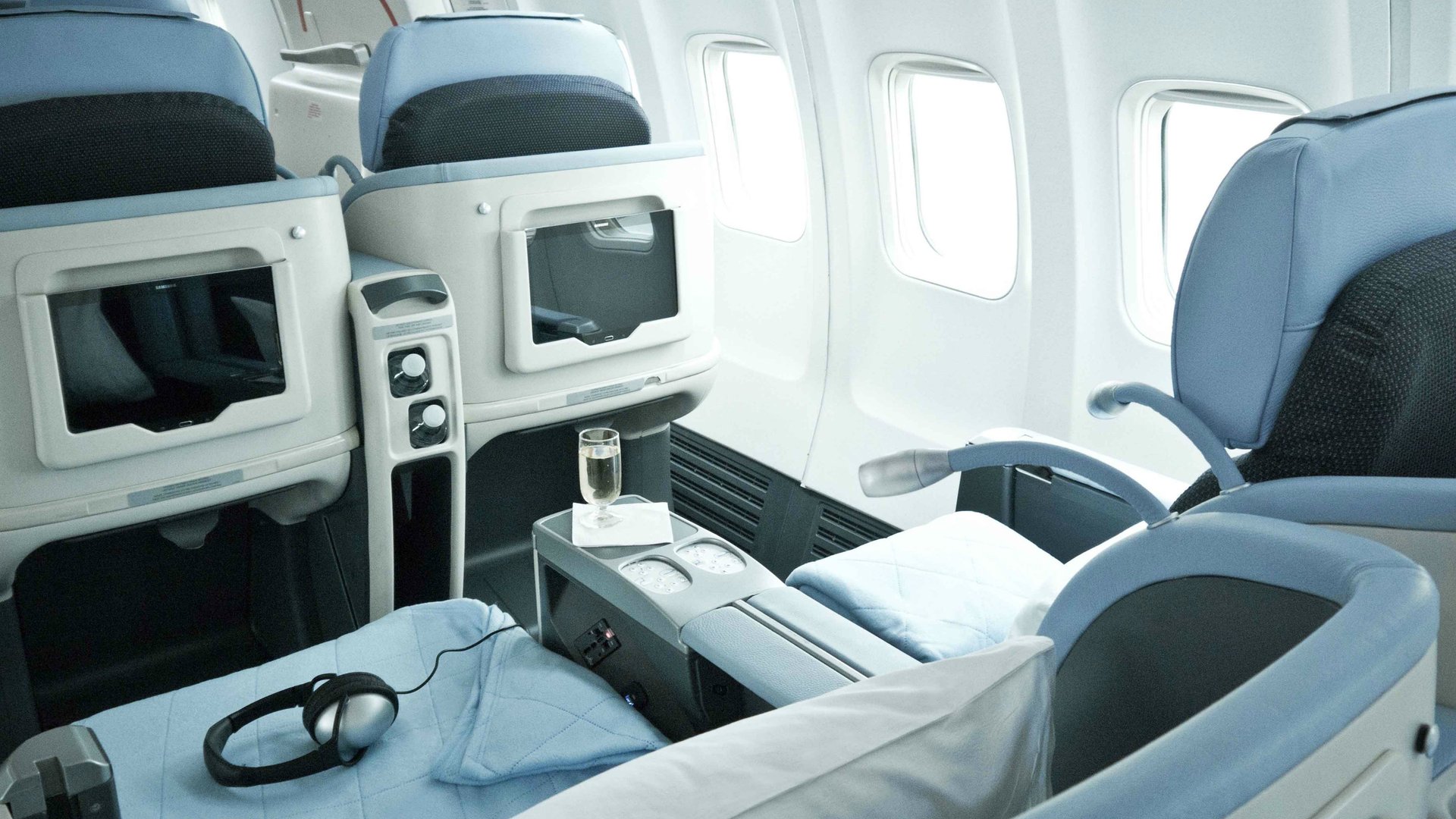Air apartheid? On this airline, business travelers won’t ever be forced to mingle with the masses
Perhaps nowhere are class divides more evident than on an airplane.


Perhaps nowhere are class divides more evident than on an airplane.
Major airlines have spent the last few years separating travelers into smaller and smaller sections on board the plane. At the bottom rung are passengers who will forgo amenities such as seat selection—or in the case of a new class created by United, even the option to put bags in the overhead bins—in exchange for the lowest airfare. At the top, passengers pay over $10,000 for a seat in a tricked-out first-class cabin.
While most airlines separate the airborne social strata with a curtain, some carriers are trying another model: entire fleets dedicated to the well-heeled, or to penny-pinchers.
Last week, low-cost French carrier XL Airways said it plans to merge with two-year old La Compagnie, which offers only all business-class flights between New Jersey and Paris. As part of the arrangement, each class of service will continue to run on separate planes.
And it in fact may end up benefitting consumers’ wallets more than a mixed-class plane.
The trip on one of La Compagnie’s 74 lie-flat seats on a flight from Newark to Paris in early February is going for $1,844. Business class on Air France for the same route on the same dates is $3,908. For passengers that are focused on price, the low-cost XL Airways serves routes from Paris to major US cities and to the Caribbean and charges passengers to select everything from their seat to their meals.
But for major carriers, success with La Compagnie’s model has been limited. British Airways earlier this year announced it was halving its all-business class service (paywall) between London’s City airport and New York. Qatar Airways ended its all-business class service between Doha and London in 2015. Singapore Airlines ditched its business-class only nonstop service from Newark and Los Angeles to Singapore in 2013.
Hotels have always been defined by the clientele that they serve, from no-frills motels to five-star luxury properties. But this is still rare at 35,000 ft—mainstream airlines have tried to be all things to all people, and that isn’t likely to change in the near-term.
That’s because the best advertisement for plush upper-class service is forcing passengers to walk through it on the way to their sad, tiny seats in coach.